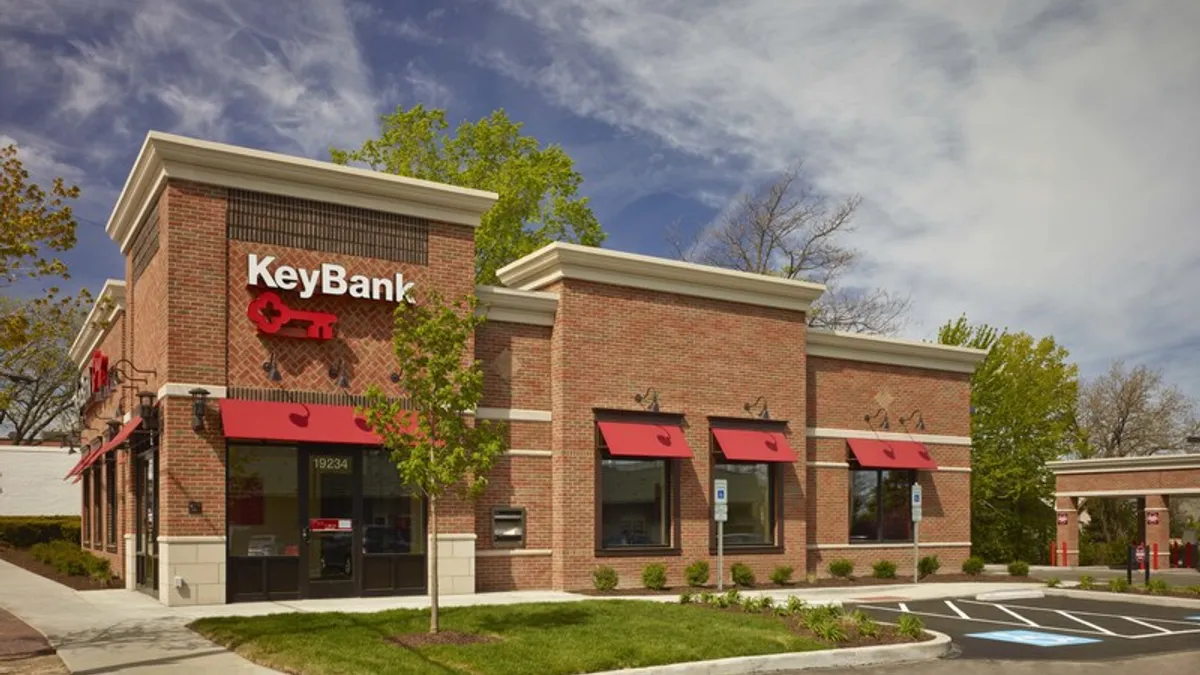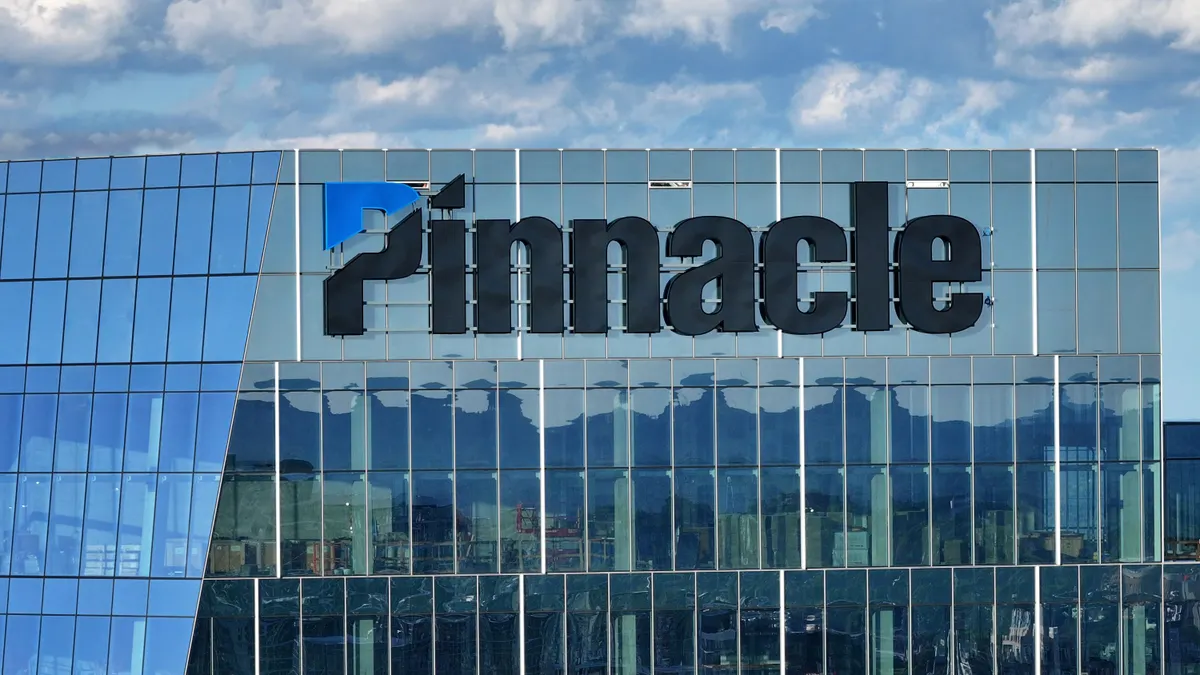Dive Brief:
- Scotiabank has agreed to take a 14.9% stake in KeyCorp for roughly $2.8 billion, the Cleveland-based bank announced Monday.
- The Canadian lender will purchase about 163 million shares of KeyCorp’s common stock for $17.17 per share, according to the statement.
- Scotia’s move would represent a huge advancement for a Canadian bank to get a toehold south of its home country — especially as recent efforts by its competitors have floundered.
Dive Insight:
Scotia’s investment will come in two tranches, Key said: an initial investment of $800 million, which will give the Canadian lender 4.9% ownership of the Cleveland bank’s common stock; then later, an additional investment of $2 billion.
Scotiabank and KeyCorp expect to complete the initial purchase at the end of this month and the follow-up in the first quarter of 2025, after customary closing conditions and approval by the Federal Reserve.
“Scotiabank approached us with a unique opportunity to raise capital on attractive terms,” KeyCorp CEO Chris Gorman said in a statement. “While we continue to be comfortable with our current capital position, we determined that the investment enables Key to accelerate our well-communicated capital and earnings improvement while bolstering our strategic position.”
The transaction is expected to create growth by focusing on investments across KeyCorp’s franchise and increasing its agility, Gorman said.
“We have a proven track record of driving growth in areas such as investment banking, payments, and wealth management, and we expect to leverage our strengthened financial position to lean into these areas more aggressively,” he added.
Scotia, meanwhile, has shifted its focus from Latin America and is refocusing on North America. The new strategy aims to prioritize better productivity — concentrating on profit rather than its earlier volume-based approach to customer acquisition, CEO Scott Thomson said during an investor day event in December.
With the move, Scotia looks to succeed in the U.S., where its rivals have fallen.
TD, for example, announced it would buy First Horizon to propel its expansion across the southeast U.S. But it terminated the deal — presumably over anti-money laundering deficiencies. TD still aims to open 150 branches in the southeast by 2027.
Meanwhile, Royal Bank of Canada’s U.S. subsidiary, City National, leaned on its parent company for a $2.95 billion cash infusion last November. The Los Angeles-based outpost later was fined $65 million by the Office of the Comptroller of the Currency over gaps in risk management and internal controls.
Scotia’s investment is estimated to increase KeyCorp's common equity tier 1 capital ratio to 12.4% and its tangible book value share by over 10%. The U.S. lender said the offer represents an 11% premium to the volume-weighted average price for the last 20 trading days.
KeyCorp holds roughly $187 billion in assets. After raising capital, the company plans to review its available-for-sale securities portfolio and aims to accelerate expected profitability, liquidity, and capital improvements while enhancing overall financial resilience, it said.
The move “raises questions about a potential full acquisition from the Canadian lender in the future,” Herman Chan and Sergio Ferreira, analysts at Bloomberg Intelligence, wrote in a report.
KeyCorp’s shares jumped 14% after the deal was announced, according to Reuters — echoing the suggestion by analysts at Keefe, Bruyette & Woods led by David Konrad, who called the move “a surprising and attractive deal for KEY giving them capital flexibility,” adding that it “puts them on their front foot for improved organic growth.”













